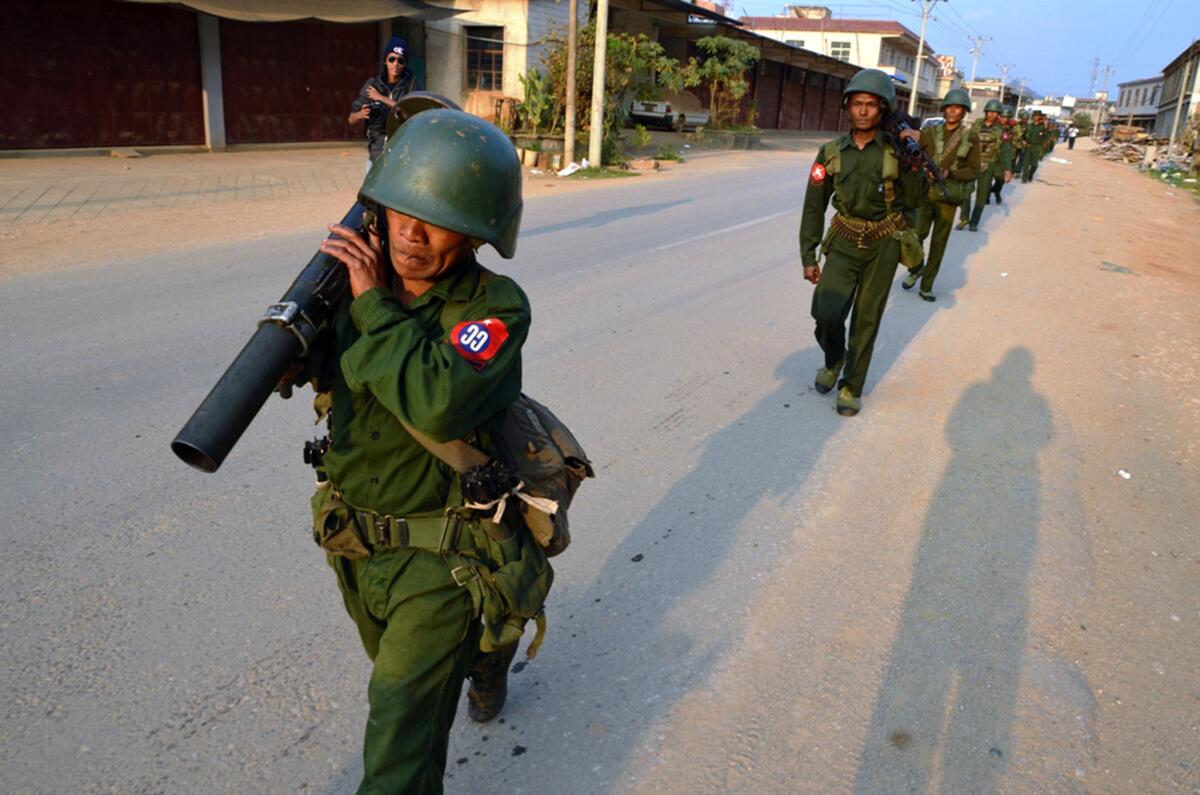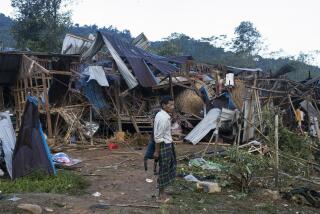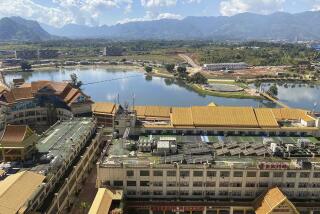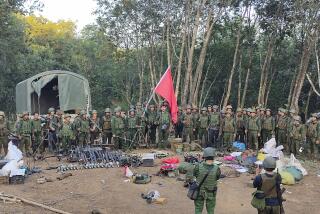Myanmar, rebels agree on cease-fire text

Myanmar soldiers patrol in Kokang on Feb. 17.
The government of Myanmar and armed ethnic rebel groups have agreed on the text of a nationwide cease-fire agreement that aims to end decades of conflict in the Southeast Asian nation, negotiators said Monday.
The draft accord was seen as a significant development after 16 months of talks, but it still must be signed by the leaders of more than a dozen armed groups.
It also comes amid intensifying conflict between the Myanmar army and a northern rebel faction that has spilled across the border into China, raising questions about the viability of any cease-fire agreement.
“We are satisfied but not completely,” said Khun Okker, co-chairman of the rebels’ negotiating team. “We have reached the limitations of what we can do. Now the draft must go to the leaders for signature.”
A nationwide cease-fire would be a historic achievement in Myanmar, formerly known as Burma, which is gearing up for nationwide elections scheduled for November, the first since five decades of military rule ended in 2011.
A historically weak central government has signed bilateral cease-fires over the years with an array of militias representing ethnic minorities that comprise about a third of the population, but the agreements have routinely fallen apart.
Sixteen armed groups and government negotiators were holding the seventh round of multilateral talks in Yangon, Myanmar’s largest city, that are aimed at paving the way toward a formal peace process.
The government led by President Thein Sein, a former military commander, is seeking a nationwide truce to show that the post-junta government is committed to democratic reforms that have prompted the United States and European Union to lift crippling economic sanctions and end Myanmar’s decades of isolation.
“President Thein Sein is eager to make peace before the election to show that the government has been effective and trying to move reforms forward,” Khun Okker said. “If he can inaugurate political dialogue, that is a great achievement for him.”
The draft text was not released publicly but negotiators said they had agreed on terms for joint monitoring of the cease-fire, management of the peace process and other issues that they had struggled over for more than a year.
A formal announcement was expected later this week. The Myanmar government and Western diplomats were hopeful that rebel leaders would sign the accord by late April.
More contentious topics, such as the possible disarmament of the ethnic militias and the government’s demand that they be folded into the national army, have not been discussed.
Meanwhile, however, conflict between the army and ethnic Kokang rebels continues to flare in Myanmar’s remote northeast. More than a month of fighting has left hundreds of soldiers and rebels dead and sent tens of thousands of refugees fleeing into neighboring China.
It has also drawn in other ethnic militias allied with the Kokang, prompting some rebel leaders to say they will not sign a cease-fire while fighting is going on.
The Kokang rebels, who speak Mandarin and have historic links to western China, are believed to number as many as 2,000 fighters equipped with Chinese-made weapons. Kokang representatives have been absent from the talks in Yangon.
Special correspondent Gabrielle Paluch contributed to this report.
Follow @SBengali on Twitter for news out of South Asia.
More to Read
Start your day right
Sign up for Essential California for news, features and recommendations from the L.A. Times and beyond in your inbox six days a week.
You may occasionally receive promotional content from the Los Angeles Times.







